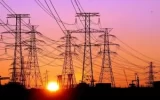Armenia’s electricity exports to Iran increase

According to Energy Press; Iran and Armenia have strategic political relations that could strengthen economic ties, especially in energy. The importance of Iran-Armenia energy cooperation is based on the fact that Armenia is heavily dependent on Russia for energy and Iran is seen as the only alternative to this dependence.
In fact, Armenia imports most of its energy needs, natural gas and oil, mainly from Russia. According to official data, Russia supplies 87.5 percent of Armenia’s gas needs via pipeline through Georgia, while Iran covers 12.5 percent through a swap agreement under which it exports in exchange for electricity.
The Importance of Diversifying Armenia’s Resources
Armenia’s energy security is deeply affected by its regional dependencies and cooperation, especially with regard to natural gas imports from Russia and Iran. Despite advances in renewable energy, especially a significant increase in solar power generation, Armenia continues to rely heavily on these foreign sources for its energy needs. The energy swap agreement with Iran (between Yerevan Thermal Power Plant and Tehran) illustrates an interdependent energy dynamic in which electricity generated by Armenia is exchanged for Iranian natural gas.
As a country lacking natural gas reserves, Armenia meets its domestic needs by importing natural gas from Russia and Iran. Natural gas imported from Russia is intended for distribution to households, industrial organizations, the energy system (electricity) and other consumers. Natural gas imported from Iran is intended for electricity generation under the energy swap agreement between the Yerevan Thermal Power Plant (YTPP) and Iran. Thermal power plants use natural gas to generate electricity, which is an integral part of Armenia’s energy portfolio; however, the country is not entirely dependent on natural gas resources for electricity generation, and solar power generation is on the rise.
Dependence on single-source markets for energy supplies poses significant geopolitical risks and threatens Armenia’s energy stability. However, the country’s energy security remains fragile and vulnerable to geopolitical disruptions that could lead to severe shortages, especially during the winter heating season. By reducing its dependence on a single supplier and increasing the resilience of its energy infrastructure, Armenia can better protect itself from geopolitical risks and ensure a more stable and sustainable energy future. Regional cooperation can ensure stability in times of uncertainty and adverse developments, and Armenia’s options in this regard can be expanded. Armenia’s energy system is currently interconnected with those of Iran and Georgia. Natural gas enters Armenia through these countries, with Georgia serving as a transit country for Russian gas. Electricity trade with Georgia is seasonal, limited, and subject to various technical restrictions. Therefore, the Trans-Caucasus Power Transmission Network project is being built to overcome these limitations and provide access to the EU market to ensure diversity.
In the case of Iran, the energy swap agreement between Armenia and Iran will be in effect until January 2030. The YTPP will provide Iran with 3 kWh of electricity for every cubic meter of imported gas. The Iran-Armenia gas pipeline, which began operations in 2007, has a diameter of 700 mm and can supply up to 2 billion cubic meters of gas annually at the required pressure. Armenia will import about 370 million cubic meters of natural gas from Iran in 2023 to supply electricity generated in Armenia. However, if the increase in gas supply is mainly aimed at increasing electricity exports to Iran, this amount will not fully cover the growing consumption of natural gas by Armenian residents in the short term. The third power transmission cable between Iran and Armenia is in the final stages of construction and will be ready in the coming months. Hence, Armenia can multiply its electricity exports to Iran as well as its natural gas imports from Iran.
Tags:electricity
- Comments sent by you will be published after approval by site administrators.
- Comments that contain slander will not be published.
- Comments that are not in Persian or not related to the news will not be published.

Comments
Total comments : 12 Awaiting review : 12 Date: 0